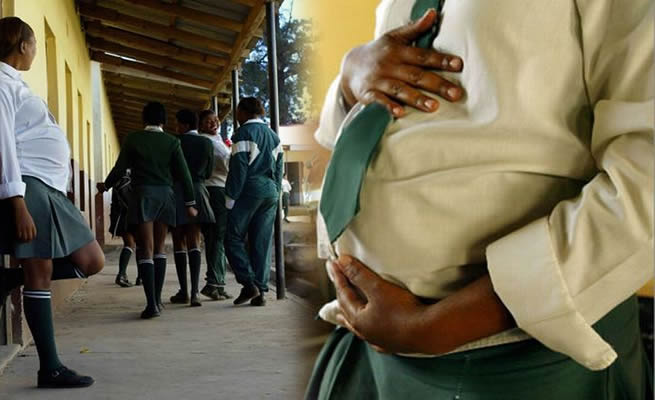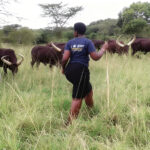Children as young as 10 to 14 years old in South Africa are facing a disturbing reality – falling pregnant, contracting sexually transmitted infections, and resorting to abortions. Recent revelations by a specialist nurse in the Cape Town Metro shed light on the severity of this issue, sparking concerns nationwide. The startling figures were unveiled during a webinar hosted by the Rural Health Advocacy Programme (RHAP), which aimed to address the challenges surrounding early pregnancy in vulnerable communities.
Judiac Ranape, a dedicated comprehensive health nurse trainer with the Department of Health and an abortion services provider, shared her profound experiences and unveiled shocking statistics that cannot be ignored. In just one year, Ranape performed over 600 abortions among teenagers, exposing the urgent need for intervention. Furthermore, the number of pregnant teenagers with syphilis is skyrocketing, as primary healthcare facilities across the country witness a surge in the births of children with congenital syphilis, a severe and often life-threatening infection seen in infants.
The RHAP's webinar, presenting its policy brief titled "Rural Realities: Navigating Early Pregnancy in Vulnerable Communities," aimed to understand the underlying causes of early pregnancies and develop prevention strategies tailored to the needs of teenagers. The event shed light on the socio-cultural factors that contribute to unwanted and unintended pregnancies, emphasizing the crucial role of social protection for adolescent girls. The findings presented by Ranape echoed the complex challenges faced by young girls in South Africa.
Ranape exposed the distressing reality she encounters daily. Between April 2023 and February of this year, she alone performed 64 abortions on girls aged 10 to 14. In the 15-19 age group, she conducted a staggering 612 abortions, highlighting the magnitude of the issue within the Cape Town Metro. The total number of abortions performed on girls aged 10 to 19 in the past financial year reached a shocking 6,441.
The primary causes of teenage pregnancy, as highlighted by Ranape, encompass gender-based violence, transactional sex, lack of sexual and reproductive health education, misinformation, limited access to contraception and healthcare services, and a lack of awareness of reproductive health rights. These factors create a perfect storm, leaving young girls vulnerable to the consequences of early pregnancies and STIs.
One of the most distressing aspects of the situation is the prevalence of gender-based violence and its contribution to early pregnancies. Ranape exposed the heartbreaking truth that she has had to perform numerous abortions on girls as young as 10 who were victims of rape. However, not all cases are reported to the authorities, with some families opting to remain silent due to fear or reliance on financial support from the perpetrators. This silence perpetuates a cycle of suffering and denies justice to the young victims.
Ranape emphasized the urgency of early intervention and access to reproductive healthcare. Teenagers often fail to seek help promptly when they become pregnant, resulting in delayed treatment that further jeopardizes the health of both mother and child. It is crucial to ensure that comprehensive sexual and reproductive health education is widely accessible to empower young people with knowledge and equip them to make informed decisions about their bodies and relationships.
The challenges faced by young girls are further compounded by family dynamics and limited access to education. In rural areas, girls often have to travel long distances or relocate to access high schooling, leaving them vulnerable and without direct oversight. The need for a holistic approach that addresses the social, economic, and educational dimensions of the issue cannot be overstated.

Follow Us on Twitter











